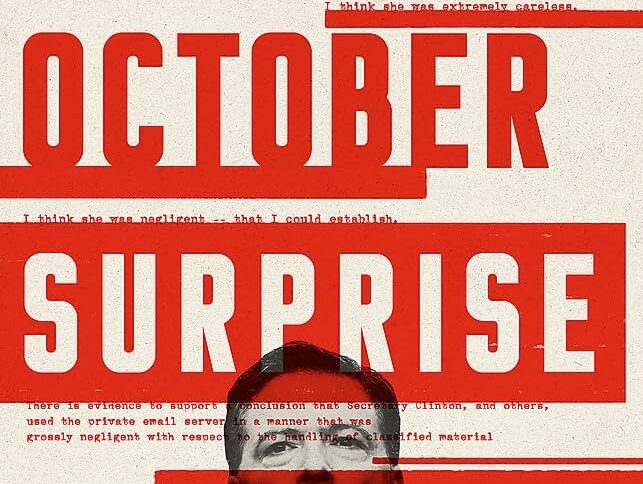As has become an annual habit, I began watching Band of Brothers yet again this Memorial Day weekend. I’ll probably tune in again on Veterans Day. It’s not exactly because I seek it out: HBO and Amazon Prime advertise it prominently on these heavily commercialized 3-day weekends.
My feelings about these federal holidays have evolved through the years. Like many veterans who came home from Vietnam thoroughly disillusioned with “American values,” I dismissed these days off as no more worthy of my attention than the F-15 flyovers, God Bless America singalongs, and stadium events singling out veterans for applause.
SpyTalk is a reader-supported publication. To receive new posts and support my work, consider becoming a free or paid subscriber.
As the decades ground on, fewer and fewer people standing in solemn participation with these ritual events had any military service of their own to fully understand them. As Andrew Bacevitch, a retired Army colonel and esteemed military and diplomatic historian put it after one post-9/11 Fenway Park game, they are a “masterpiece of contrived spontaneity,” which “leaves spectators feeling good about their baseball team, about their military, and not least of all about themselves—precisely as it was meant to do.”
I still abhor these cheap, Pentagon p.r. exercises, along with the flag-waving mattress sales and “start of summer” alcohol-soaked barbecues. I also respectfully decline to stand up, with thousands of other baseball fans, hand over heart, for the socially coercive playing of the religio-nationalist God Bless America, during the 7th inning break.
But my feelings about Memorial Day have steadily changed since the post-9/11 wars in Afghanistan and Iraq and so many soul draining counterterrorism missions gave lie to our proclaimed values. As with Vietnam, the veterans of these conflicts participated in expeditions that most quickly saw were doomed, or worse—meaningless. But they soldiered on, mostly out of their own self-respect and the respect of their battle buddies.
The butcher’s bill inevitably came due: A 2021 study showed that “four times as many active duty service members and veterans died by suicide as died in battle since 9/11.” This was a scourge that exploded in the wake of Vietnam and has never been solved, although the VA keeps trying. (You can reach its suicide hotline here.)
So I am very sorry for these veterans, as sorry as I am when I go down to the Vietnam Veterans Memorial here in Washington and touch the name of Ed Sonnichsen, an Army intelligence buddy who was assassinated in a Viet Cong setup in 1968. My surviving veteran friends still have lots of mixed feelings about serving in Vietnam.
Somewhat ironically, I’ve come to increasingly value the sacrifice of veterans by repeatedly watching Band of Brothers, which dramatizes the real life history of “Easy” Company, 2nd Battalion, 506th Parachute Infantry Regiment of the 101st Airborne Division, from their training in Georgia through their occupation of Hitler’s abandoned mountain retreat in Berchtesgaden in May 1945. Sure, the gun-battle heroics tend to dominate each episode, but the carnage and horror are very much there, too—along with their real life, retrospective confessions of some participants that they were forever haunted by their war experiences. Watching the series has helped me understand my own enduring rage at chickenhawks, the (mostly) men who cheer on war while choosing to sit it out themselves. You can find many of them on any given Sunday in the football stands.
So this Memorial Day, and on Veterans Day in November, God willing, I’ll raise a solemn glass to all the walking wounded who came before me, and of course those who gave the ultimate sacrifice—and their families. If you want to do a good deed, tell their surviving relatives you’re sorry for their loss. Reaching out by phone or, if you must, email, is a much better way to honor them than singing God Bless America.
A Veterans Project
In 2022, I introduced you to Army veteran Ron Capps. As I wrote then:
As a CIA-trained Army intelligence officer and later crisis-scene diplomat with the State Department, Ron Capps was inserted into the middle of some of the world’s worst catastrophes of the 1990s and beyond, from Bosnia, Iraq and Afghanistan to the civil wars and genocide raging across Central and East Africa. He eventually reached a breaking point in Dafur, where, working as a foreign service officer, he was overcome by not being able to stop the murder, rape, and genocide that surrounded him. Stricken by nightmares and facing a complete breakdown, Capps was medevaced home.
When I first met Ron in 2010, he was launching the Veterans Writing Project, a non-profit organization that hosts creative workshops and seminars for war veterans and service members, as well as their adult family members. He had also written a searing memoir, Seriously Not All Right: Five Wars in Ten Years. Not only that, he’d begun a new career as a singer-songwriter, plumbing the same issues he and so many other intelligence, spec-ops and front-line foreign service officers have dealt with.
Ron Capps now lives happily in Maine with his bride, Carole, and has branched out into acting as well. But it’s his songs that touch the heats of veterans.
It’s my solemn pleasure to leave you with one of his most moving songs—This Time, about a veteran who returns home “with the smell of war still on [his] clothes, and, when he has to return to duty, his daughter asks, “Daddy will you win the war this time?” It’s from his album, Trying to Catch Amnesia.
SpyTalk is a reader-supported publication. To receive new posts and support my work, consider becoming a free or paid subscriber.



